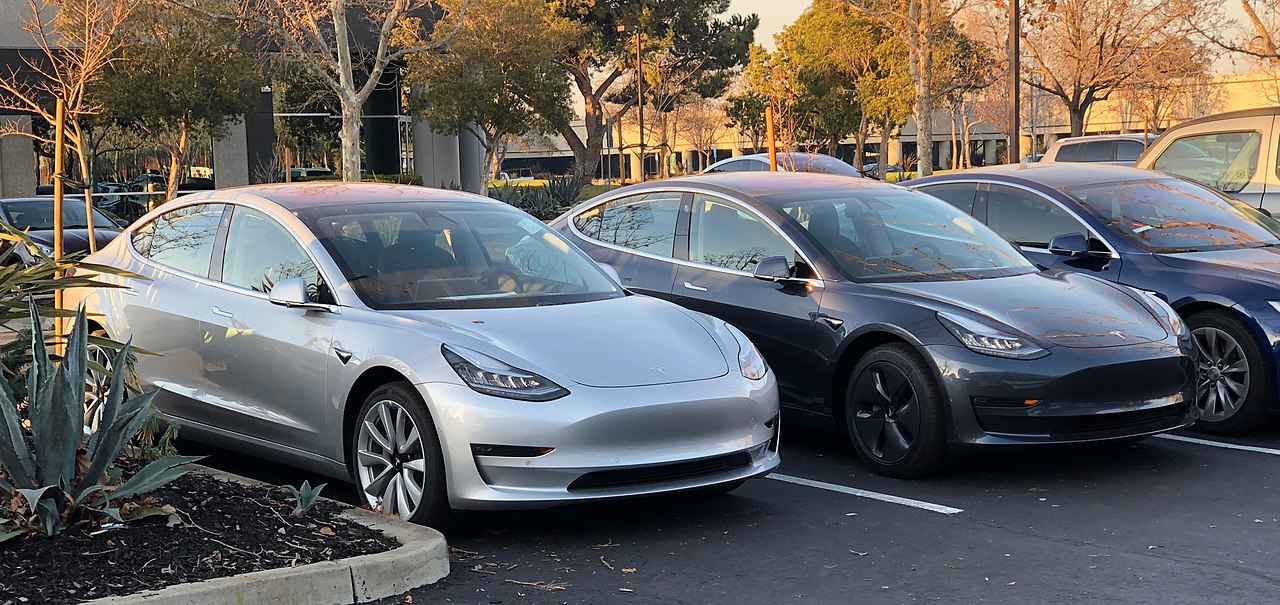 EMERGING TECH
EMERGING TECH
 EMERGING TECH
EMERGING TECH
 EMERGING TECH
EMERGING TECH
Shares in Tesla Inc. dropped by over 6% in late trading after the electric car and solar panel maker reported slightly lower-than-expected revenue and earnings in its fiscal first quarter.
For the quarter that ended March 31, Tesla reported adjusted earnings per share of 85 cents on revenue of $23.33 billion. Analysts were expecting 86 cents and $23.35 billion.
Total automotive in the quarter rose 18% from a year ago, to $19.963 billion, but that was down from $21.307 billion in the previous quarter. Tesla’s energy generation business revenue jumped 148%, to $1.529 billion in revenue, and other revenue such as services rose 44%, to $1.837 billion.
Operating expenses declined 1% year-over-year, to $1.847 billion. Income from operations fell 26%, to $2.664 billion. The company’s operating margin was 11.4%, down about eight percentage points. The simple reason: Chief Executive Elon Musk started an electric car price war.
Loved or hated depending on whom you ask, most would agree that Musk is a lifelong expert in disrupting markets. The price war he has intentionally started, particularly in mainland China, is great for people wanting to buy an electric car for the first time but not so much for existing owners, who have protested against the cuts.
The Tesla price cuts have arguably completely upended the mainland China car market, to the point that after Chinese car makers followed Musk’s move to offering lower prices, second-hand Chinese car dealers ended up in deep trouble, since it’s often cheaper to buy an electric car in mainland China versus a second-hand gasoline or diesel model.
Though nowhere near the level of the cuts in China, Tesla is also cutting its retail prices in its home country of the U.S. According to Reuters, Tesla has cut the retail price of its vehicles six times this year in the U.S.
On its profitability, Tesla said in its quarterly update to investors that its operating margin fell because of growth in vehicle deliveries, gross profit growth in the company’s energy business and services, reduced average selling price year-over-year — that is, the cars are being sold for lower prices — higher raw material, commodity, logistics and warranty costs, “cost of production ramp of 4680 cells” and lower credit revenue.
“4680 cells” refers to a new type of battery cell developed by Tesla that is larger and more energy-dense than their previous cells. The “cost of production ramp” is the process of increasing the production of these cells while also lowering the cost of producing them.
Looking forward, Tesla did not give hard estimates for the quarter or year ahead, saying only that it expected to see global production of 1.8 million vehicles in 2023.
CNBC reported that on Telsa’s earning call, Musk emphasized an “uncertain” macroeconomic environment that could impact people’s car shopping plans. He also described the year ahead as 12 months of “stormy weather,” cautioning that “every time that the Fed raises interest rates, that’s equivalent to an increase in the price of a car.”
“We’ve taken a view that pushing for higher volumes and a larger fleet is the right choice here, versus a lower volume and higher margin,” Musk noted on the call.
Support our mission to keep content open and free by engaging with theCUBE community. Join theCUBE’s Alumni Trust Network, where technology leaders connect, share intelligence and create opportunities.
Founded by tech visionaries John Furrier and Dave Vellante, SiliconANGLE Media has built a dynamic ecosystem of industry-leading digital media brands that reach 15+ million elite tech professionals. Our new proprietary theCUBE AI Video Cloud is breaking ground in audience interaction, leveraging theCUBEai.com neural network to help technology companies make data-driven decisions and stay at the forefront of industry conversations.